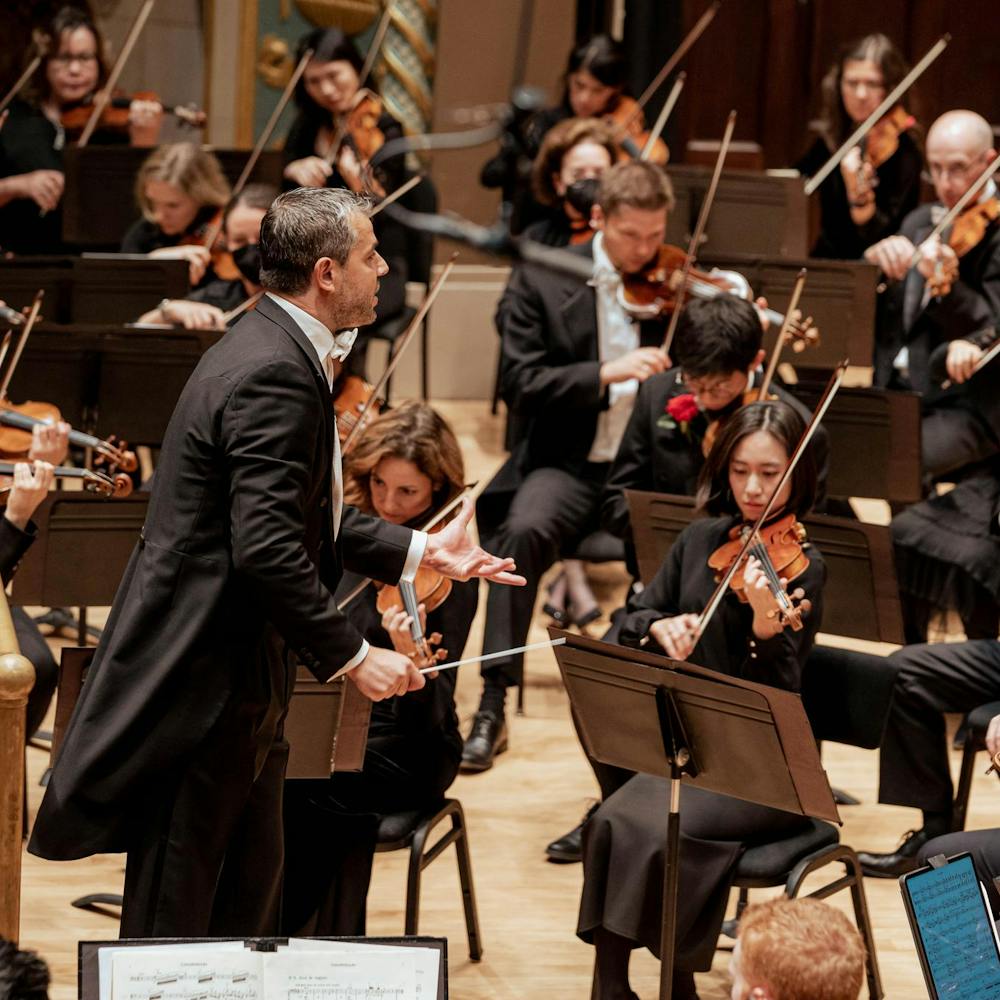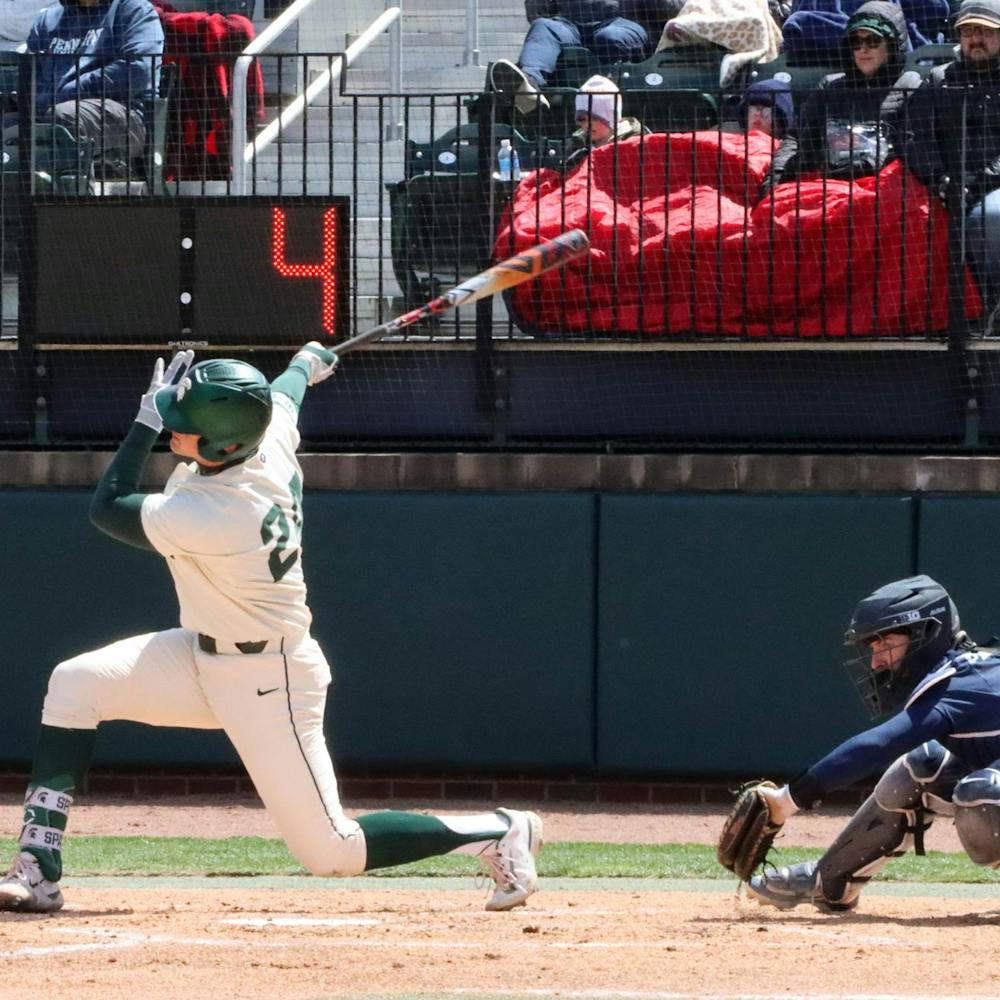First-generation college students face hurdles to be the first in their family to graduate
Neuroscience and philosophy freshman Tamara Porter came to MSU with one goal in mind.
To graduate.
Porter’s mother went to college and dropped out after one year. Her father did the same. Her sister went to college for three years before dropping out.
“(College is) important to me because education is important to me,” Porter said. “With education, I know that once I have that, no one can take that from me. So, after that, I’m limitless, no one can tell me what to do. I am the boss of me.”
Porter doesn’t plan on stopping after earning her undergraduate degree. After she walks across the stage of Breslin Center in four years to get her diploma, her next stop is graduate school.
Porter’s situation is not uncommon at MSU, as many other black students are aiming to be ‘first-generation’ college graduates, or the first in their family to earn a college degree.
According to MSU’s Office of the Registrar, during fall 2010, 3,175 students who identified as black or African-American were admitted. Those who were admitted counted as 6.7 percent of total students in 2010.
In 2014, the expected year of graduation for students admitted in 2010, 58 percent of black, non-hispanic students graduated, according to the Office of Planning and Budgets.
Looking at those numbers, the gap is clear — little more than half of self-identified black students graduate in four years. This is an issue administration and programs at MSU are working to address.
And while MSU and its programs work to figure out the right ways to give first-generation students the building blocks they need to get to commencement, Tamara Porter is working to put them together during her first year at MSU.
Making the leap
Before first-generation or low-income students can make it to college, they need to know how to get there. That’s where the MSU Detroit Center comes in.
READ MORE
Located in Detroit, the MSU Detroit Center focuses on assisting students through the admission process.
John Ambrose, associate director for Inclusion and Strategic Planning at MSU, said 25 percent of students who apply to MSU self-identify as first-generation students.

Ambrose said the center is appointment-only at this time.
Myaa Jones, president of MSU’s Black Student Alliance, said while programs and admittance for black students is getting better, only time and graduation rates will tell how well black first-generation students are fairing.
“I think we do a really good job in admitting, I don’t know how good of a job we do with retaining them,” Jones said. “I think the thing to do now is to wait it out and see how the stats come in and see if these programs are actually working.”
Support student media! Please consider donating to The State News and help fund the future of journalism.
Because of a 2014 U.S Supreme Court ruling, Michigan law bans public universities from using race to make a decision on admittance.
But once first-generation students are on campus, there is a plethora of resources they can utilize to aid in their adjustment.
Finding a Place
TRIO Student Support Services is one of eight programs that are federally-funded and is designed to support first-generation and low-income students.
“It’s basically a program where we’re given tutors, success seminars and things of that sort to help us know about different things that a first-gen kid wouldn’t because our parents didn’t go through that stuff,” Porter said.
Another program Porter is a part of is the Spartan Success Scholars.
The benefits offered to Spartan Success Scholars include peer support, introduction to high-impact learning experiences and the honor to be a part of a community of like-minded students.
Jones, also a Spartan Success Scholar coach, offers insight on what it is like to be an aid for individuals within this program.
“As a coach, I make sure my students have what they need to be successful Spartans. If they need help with anything, even outside school related, I direct them to the resources that will aid them. I like to think of it as mentoring.”
“Both programs are beneficial and something they (students) should really get involved with if the (students) are allotted the chance to because they’re really groundbreaking,” Porter said.

But for some students, getting involved with support groups can be difficult between juggling jobs to pay for school, and simply not knowing the resources that are available.
This is the case for undecided sophomore Jessie Truesdell.
"(Going to college) was almost never not an option,” Truesdell said. “A lot of (my) parents’ friends went to college so I see what good it can do.”
But for Truesdell, the hardest part about being a first-generation college student isn’t figuring out how to navigate higher education. It’s trying to pay for it.
“I’m paying a third, my student loans are paying a third and my parents are paying a third,” Truesdell said. “I’m working at the Leo’s Coney Island on M.A.C. and Albert and then I have money saved from high school, my job in high school, that I’m taking from. I’m definitely working to cover my portion of the tuition.”
Since Truesdell has been in college, her opinion of higher education has changed.
“I feel extremely grateful to have this option and that not only has my family come so far, in terms of what they want for their future generations, like as a whole,” Truesdell said. “They want everyone to make better decisions and do as much as they can to help themselves in the future.”
“I will be super proud (when I graduate),” Truesdell said. “I know my parents are going to be super proud, so it’s going to be a really good ‘I did this’ moment.”
For Porter, coming to college has opened up new ways of learning more about herself.
“I will feel very happy and accomplished (when I graduate) and I feel like I’ll have a better sense of where I want to go in life and what I want to do,” Porter said. “(My parents) will be so proud of me and so happy.”



